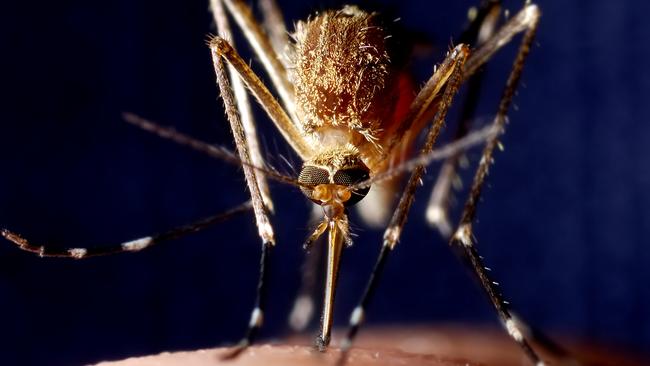‘Good’ mosquito bred to combat deadly diseases
Turns out there is such a thing as a ‘good’ mosquito: a fluorescent, genetically modified ‘suicide’ mozzie.

A British biotech company has become the first to sell genetically modified mosquitoes with a “suicide gene” directly to the public to help combat diseases such as dengue fever.
The insects have been developed by Oxitec, a company founded by Oxford University scientists and based in Abingdon. People in Brazil can order eggs online which produce genetically altered males of the Aedes aegypti mosquito.
The males do not bite so they don’t spread disease. When they breed with wild females — which do bite — the female offspring carry a lethal gene that causes their bodies to be flooded with a toxic protein that kills them before they reach adulthood.
This genetic “kill switch” should remain in the population for about ten generations, equivalent to about ten months, suppressing mosquito numbers and reducing rates of dengue and other diseases they carry.
The insects have been fitted with a second gene that makes them fluorescent, allowing them to be tracked.
Opponents have voiced concerns that the technology could have dangerous unintended consequences. Advocates believe, however, that it could put the ancient battle between humans and the mosquito, their deadliest predator, on a new footing.
“These are good mosquitoes that control bad mosquitoes,” Grey Frandsen, the Oxitec chief executive, told The Times.
Traditional controls such as insecticides are losing effectiveness as the insects develop resistance, he said. “It’s been a long road to get to this point but this is an exceptionally powerful technology and completely safe,” he added.
The World Health Organisation says that rates of dengue have grown dramatically with about half the global population at risk. Up to 400 million people a year are infected, many of them children.
Tests in a Brazil region that had been racked with the disease suggested in 2016 that Oxitec’s mosquitoes could cut cases by more than 90 per cent.
The Aedes aegypti mosquito also carries the Zika virus, which causes babies to be born with tiny heads and damaged brains, as well as chikungunya, another viral infection that has spread around the world, including in Europe, partly due to climate change.
The same genetic tactics could also be used to tackle agricultural pests and the female Anopheles mosquitoes that carry the most dangerous form of malaria, which kills about 500,000 a year. “We have two malaria-transmitting mosquitoes that we’re working on,” Frandsen said.
In Brazil, the Oxitec Friendly mosquitoes are being sold in the state of Sao Paulo for about dollars 10 to dollars 30 a month through a subscription service.
Customers get a box to put in a garden or balcony. Egg refill packs are delivered in the post. The eggs are placed in the box, water is added and males hatch over a fortnight. “It’s exceptionally simple,” Frandsen said. “The technology is very elegant.”
The Times



To join the conversation, please log in. Don't have an account? Register
Join the conversation, you are commenting as Logout